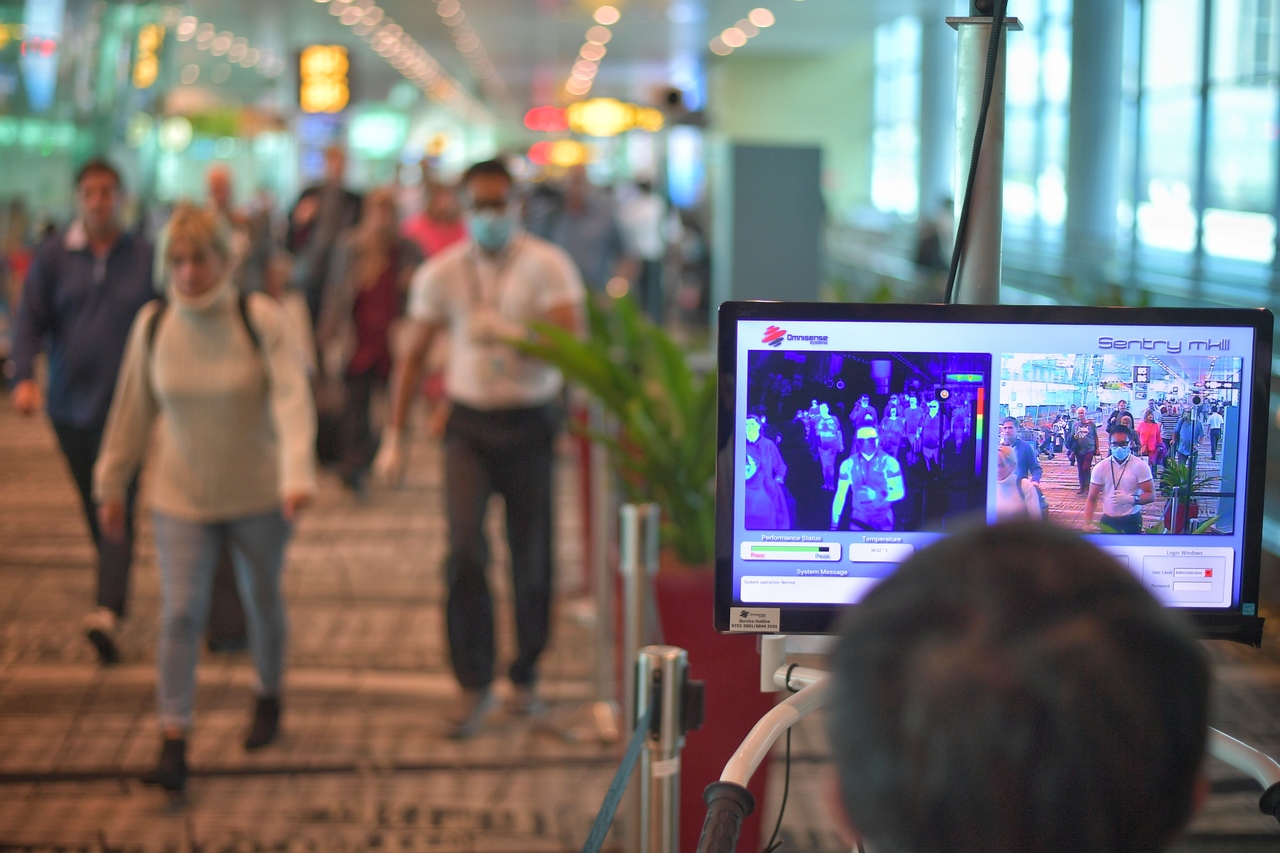Coronavirus: Recent travellers to S. Korea, northern Italy and Iran barred from S'pore; symptomatic travellers may be tested at entry point
Sign up now: Get ST's newsletters delivered to your inbox

From 11.59pm on Wednesday, all travellers entering Singapore who have fever or other symptoms of respiratory illness may be required to undergo a Covid-19 swab test at checkpoints.
PHOTO: ST FILE
Timothy Goh, Rei Kurohi
Follow topic:
SINGAPORE - From 11.59pm on Wednesday (March 4), travellers who have been to South Korea, northern Italy and Iran within the last 14 days will not be allowed to enter or transit through Singapore, as the Republic ramps up its fight against the spread of the coronavirus.
The restrictions were put in place by the Multi-Ministry Taskforce to limit the risk these regions may pose to Singapore.
Singaporeans, residents and long-term pass holders who have been to these Covid-19-hit areas in the last 14 days will be allowed in, but will be issued a stay-home notice. This means they must remain in their place of residence at all times for that duration.
The Ministry of Health (MOH) also urged Singaporeans to defer non-essential travel to Iran, northern Italy, South Korea and Japan. These countries have seen spikes in cases.
In addition to these measures, MOH is implementing precautionary testing for symptomatic travellers to stem the spread of imported cases.
From 11.59pm on Wednesday, all travellers entering Singapore who have fever or other symptoms of respiratory illness may be required to undergo a Covid-19 swab test at the checkpoint.
They can carry on with their journey in Singapore after undergoing the test but will be advised not to mingle as a precautionary measure.
The test results could take between three and six hours. The travellers will be contacted and told their test results, and those who test positive will be taken to hospital in an ambulance.
Short-term visitors who refuse to undergo the test will be denied entry, said MOH.
Singapore permanent residents and long-term pass holders who refuse the test could have their passes and privileges revoked or shortened.
All travellers - including Singaporeans - who do not comply with testing may face penalties under the Infectious Diseases Act.
A ministry statement said the Covid-19 swab test kit deployed at checkpoints allows Singapore to test beyond persons who are referred to hospitals, and extend testing to lower-risk symptomatic travellers as an added precautionary measure.
This "further increases our likelihood of detecting imported cases at the point of entry", it said.
As with any test, a negative result does not completely rule out the possibility of infection. "As such, symptomatic travellers with a negative test result should continue to minimise social contact and seek medical attention should symptoms not improve over the next three days," it said.
National Development Minister Lawrence Wong, who co-chairs a multi-ministry panel fighting the virus, told reporters on Tuesday that despite Singapore's best efforts, "we have to be mentally prepared for the number of infected cases in Singapore to go up".
He noted that the number of cases in Singapore over the past few days has risen by just a handful each day, but warned that this is not the norm and it can change very easily.
"You see this in other countries too, where you have very few cases for a few days and then suddenly one incident occurs and there is a sharp spike in cases and sustained transmission. This has happened elsewhere and it can happen in Singapore."
MOH also said in its statement that the virus is spreading quickly around the world and there are likely to be many undetected cases in countries that are not undertaking proactive testing.
"We will be exposed to new waves of infection, and increasingly it will not be possible to stop the virus at our borders," MOH said.
"We also cannot isolate Singapore and shut ourselves from the world. So despite our best efforts, we have to be prepared for new spikes in Covid-19 cases in Singapore, as has happened elsewhere."
MOH said that while the Government will continue to put in resources to detect and isolate cases, people must continue with practices that have proven effective in reducing the spread of the disease, including staying at home when unwell and practising good personal hygiene.
As of noon on Tuesday, 90,689 cases of Covid-19 have been reported globally, with 10,538 of them outside China where the virus emerged.
South Korea has 4,812 cases, Italy has 1,835, mostly in the northern region, while Iran has 1,501 and Japan had 268.
MOH said northern Italy refers to eight administrative regions: Aosta Valley, Piedmont, Liguria, Lombardy, Emilia-Romagna, Veneto, Friuli-Venezia Giulia and Trentino-Alto Adige/Südtirol.

